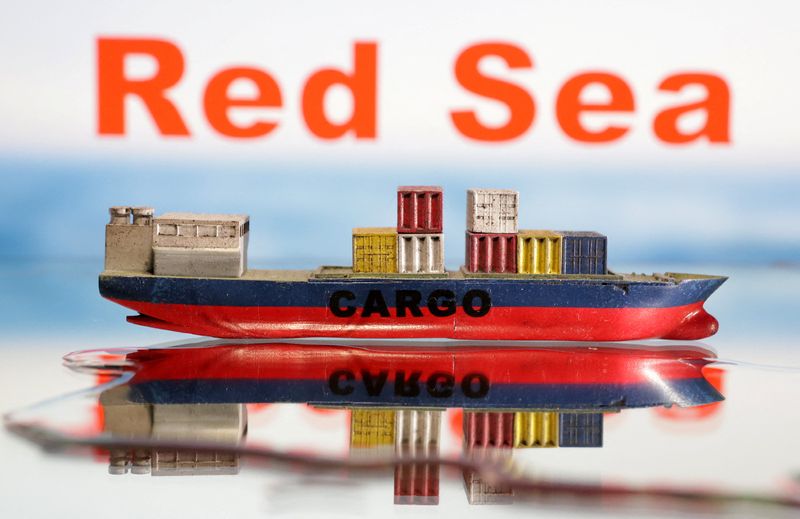By Enes Tunagur
LONDON (Reuters) -Fuel oil used in ships and power plants is seeing unexpected demand, with efforts to curb its use more than offset by an expanding shadow fleet of oil tankers serving Russia and others, and longer shipping routes as vessels avoid the Red Sea.
Instead of switching to cleaner-burning alternatives such as marine gasoil and low-sulphur fuel oil, many shippers have installed exhaust gas cleaning devices known as scrubbers to continue using high-sulphur fuel oil. Western sanctions and attacks on shipping in the Red Sea have further driven this unforeseen demand.
“Fuel oil markets have shown remarkable resilience, with demand outperforming expectations due to several key factors, such as still-firm power generation demand in the Middle East and Red Sea shipping disruptions because of Houthi attacks,” said Royston Huan, analyst at Energy Aspects in August.
While global demand for diesel and jet fuel has fallen globally since 2019 pre-pandemic levels, and gasoline consumption has risen by just 1.9%, fuel oil demand is up by 4.8% to an average 6.5 million barrels per day (bpd) in 2025, according to the International Energy Agency’s June annual report.
Fuel oil could still strengthen near-term owing to demand from refineries, but we expect the supply-demand balance to become looser in November to December alongside the return of some refineries in Saudi Arabia and Brazil from maintenance, Huan added.
FUEL OIL DEMAND SURGES PAST EXPECTATIONS
In 2020, the IEA had forecast fuel oil demand would grow by just 1.6% between 2019 and 2025 — the slowest pace among major refined fuels.
IEA analyst Ciaran Healy told Reuters that fuel oil use in power generation has slightly outperformed the agency’s expectations in recent years, largely due to hotter summers in the Middle East and North Africa.
Saudi Arabia and Egypt’s fuel oil imports rose by 33% year-on-year in 2024 and remained around 31% higher in 2025 so far compared with 2023, according to shipping data firm Kpler.
Western sanctions on Russia have also contributed, with Saudi Arabia importing discounted Russian fuel oil to free up more of its own crude for export.
RED SEA DIVERSIONS, SHADOW FLEET
More ships now travel around the Cape of Good Hope instead of the Suez Canal, boosting fuel oil demand, as conflict in the Red Sea continues.
Vessels have avoided the region since 2023 due to attacks by Yemen’s Iran-aligned Houthis, who aim to disrupt global shipping in protest over the war in Gaza.
These diversions have increased fuel oil demand by around 100,000 bpd, roughly 2% of global bunker demand, according to consultancy FGE.
Story Continues
